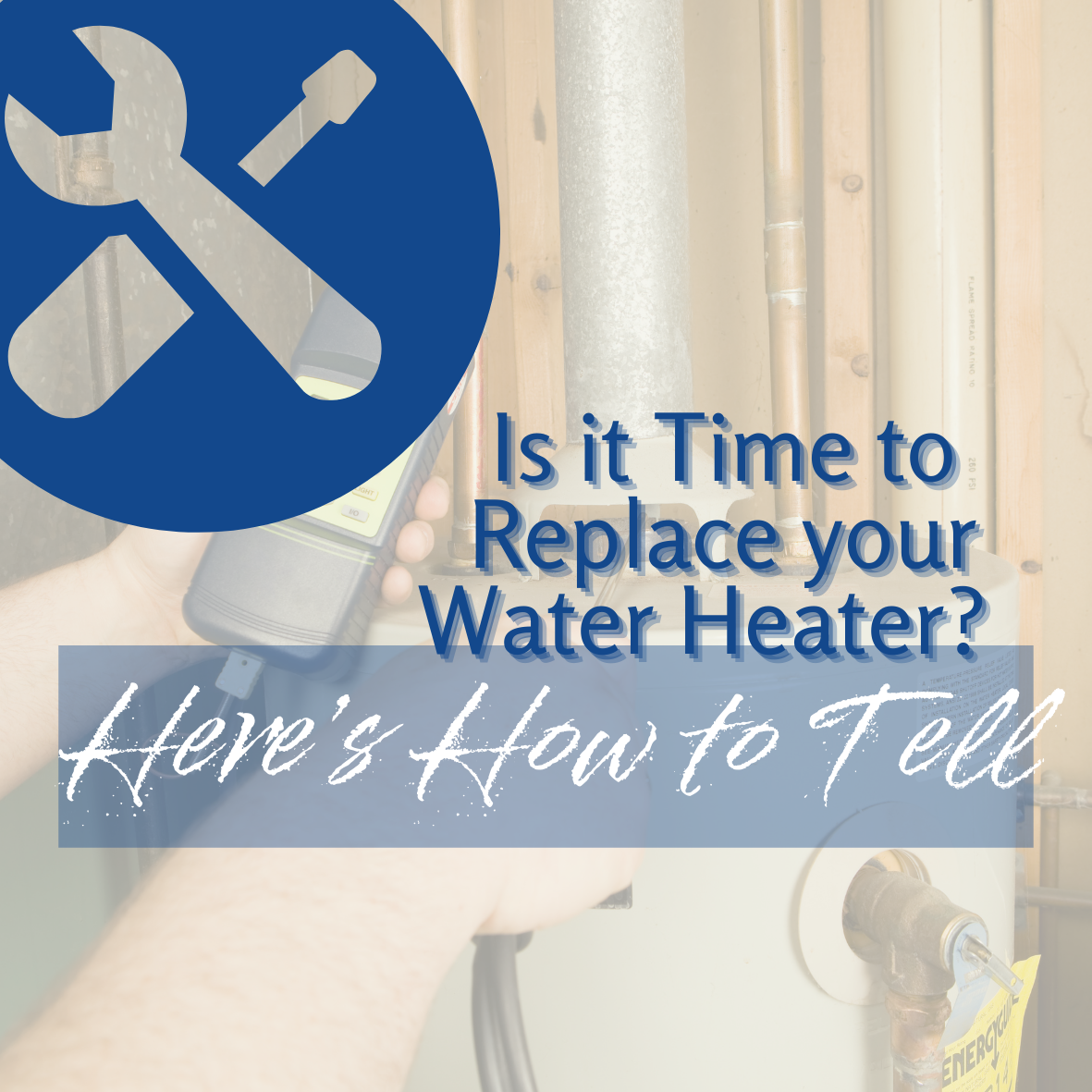The Smart Homeownership Series:
Is It Time to Replace Your Water Heater? Here’s How to Tell
Cold showers are one thing—but the surprise expense of a broken water heater is a whole other level. If yours is making noise, leaking, or just struggling to keep up, it might be time for a change.

Is It Time to Replace Your Water Heater? Here’s How to Tell
Whether you’re a longtime homeowner or still learning the ropes, one thing is certain: your water heater does more behind the scenes than you realize—until it stops working.
If you’re starting to question whether yours is nearing the end of its life, here are some signs to watch for—and what to do next.
🚩 Signs It’s Time to Replace:
1. It’s Getting Old
Most electric water heaters last around 10 years, while gas units average closer to 8 years. Check your serial number—the first two digits usually show the year it was made. If yours is getting up there in age, it’s smart to replace it before you end up with rust, leaks, or cold water.
2. Rusty Water or Rust Around the Tank
If the hot water comes out looking orange or your tank has rust near the valve, corrosion has likely started—and leaks are only a matter of time.
3. Loud Rumbling or Banging Noises
Sediment buildup at the bottom of the tank can cause your heater to make noise and lose efficiency. If flushing it doesn’t fix the problem, it’s a sign your tank may be close to cracking.
4. Leaks or Pooling Water
Water around the base of your heater isn’t something to ignore. If it’s coming from the tank itself and not just a loose valve or fitting, replacement is usually the only option.
5. Lukewarm or Inconsistent Hot Water
If your showers are colder or shorter than they used to be, it might be your heater working overtime—or simply not keeping up. You may need a larger tank, or it could be a sign your unit is failing.
Ready to Replace? Here’s What to Know:
→ Know Your Water Needs:
Typical families need a 40–50 gallon tank, but it depends on usage. Look at the recovery rate (how fast it reheats) if you’ve got a busy household.
→ Measure Your Space:
Tight utility closets or garages can limit your replacement options—always measure before you buy.
→ Tank or Tankless?
Traditional models are cheaper upfront, but use more energy and need more frequent replacement.
Tankless systems cost more to install but last longer and use less energy by heating water on demand.
The Bottom Line….
If your water heater is aging, noisy, or struggling to do its job, it may be time to start planning for a replacement—before you’re left in the cold. A little research now can save you time, stress, and money later.

📩 Have questions or want help choosing the right water heater for your Florida home? Email me anytime —I’m here to help.
→ april@planmyfloridamove.com
Ready to start planning out a move?
You don’t need to have it all figured out. Just tell me your story – and I’ll help you build a plan that makes sense. SCHEDULE A QUICK CHAT
👉 Join THE BOTTOM LINE – My free weekly newsletter with smart tips for homeowners and home sellers.
Hi, there!
Hi, I’m April.
So glad you’re here.
Whether you're dreaming of life under the palm trees or planning your next smart move, I’m here to make your move feel simple, doable, and a lot less overwhelming.
Relocating, selling, or just starting to explore your options? You're in the right place.
Let's Meet
Contact
Proudly Serving Southwest Florida
April@PlanMyFloridaMove.com
Buy Your Florida Home
Sell Your Florida Home
Relocate to Florida
Take Care of your Florida Home
schedule your free consultation
